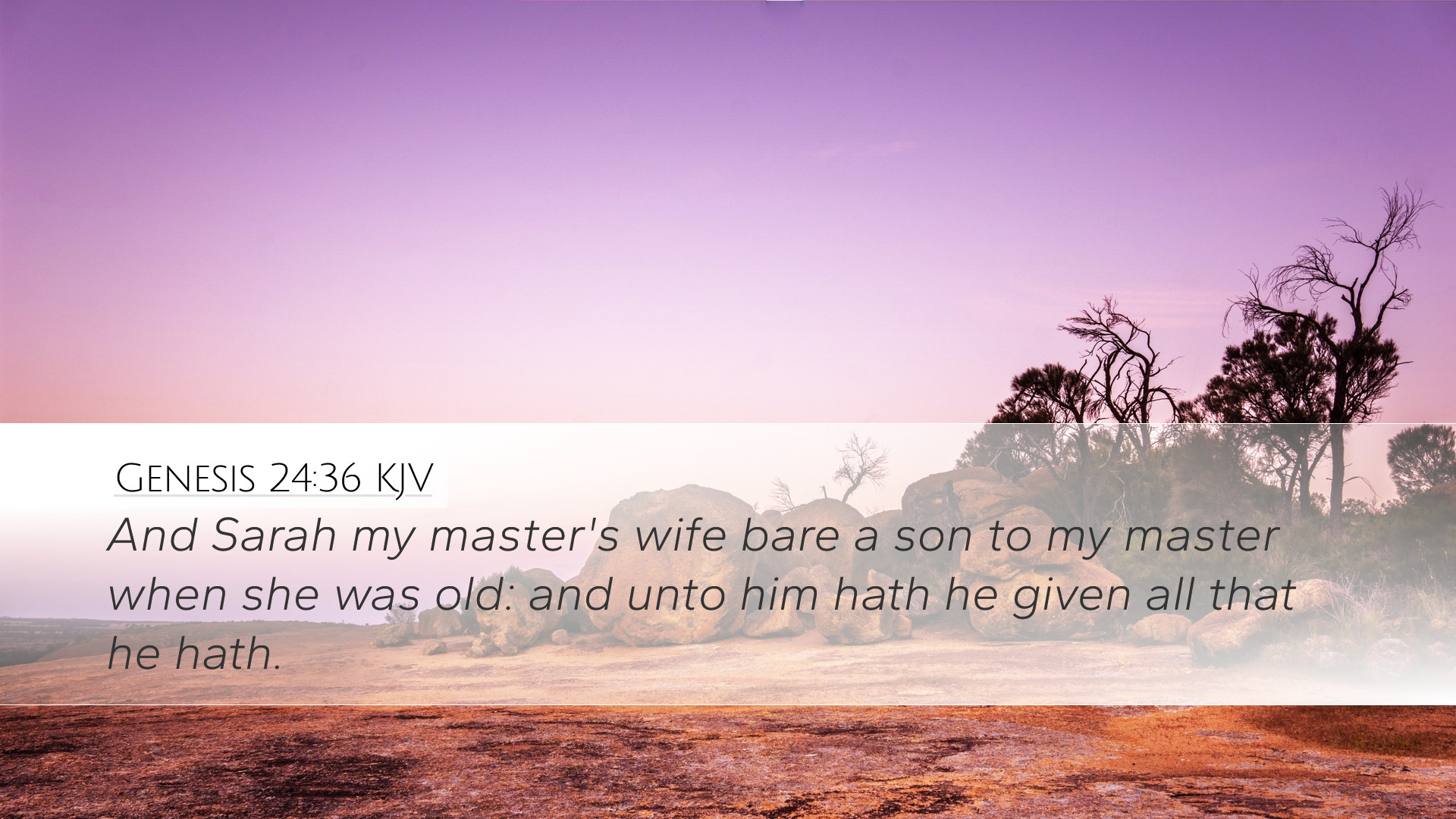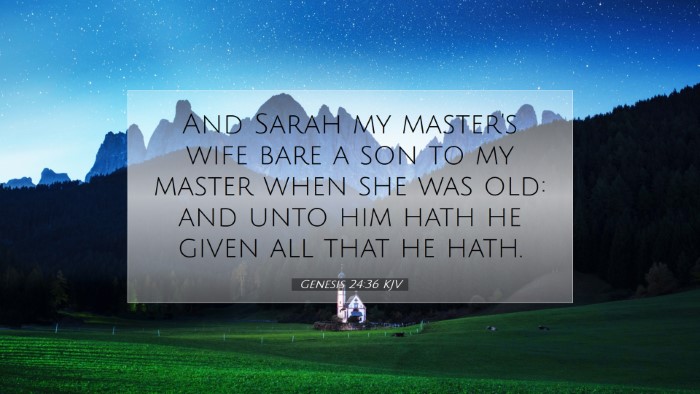Commentary on Genesis 24:36
Verse Context: Genesis 24:36 states, "And Sarah my master's wife bare a son to my master when she was old; and unto him hath he given all that he hath." This verse is situated within the narrative of Abraham's servant seeking a wife for Isaac, showcasing the significance of lineage and the fulfillment of God's promise to Abraham.
Overview of the Passage
This verse serves as a pivotal point in the servant's recounting of the story of Abraham and Sarah, emphasizing the miraculous nature of Isaac's birth and the inheritance that was conferred upon him. It subtly hints at the covenant relationship that Abraham had with God and the special status of Isaac within that covenant.
Insights from Public Domain Commentaries
1. Matthew Henry's Commentary
Matthew Henry stresses the significance of God's providence in bringing Isaac a wife. He notes that Isaac's birth was not only miraculous but also part of God's broader redemptive plan. Henry highlights that “the contrast between the barrenness of Sarah and the fruitful legacy of Isaac reflects the faithfulness of God in fulfilling His promises.”
2. Albert Barnes' Notes
Albert Barnes focuses on the socio-cultural implications of this verse. He points out that the inheritance mentioned is not merely material wealth but speaks to the spiritual heritage passed down through generations. Barnes elaborates, stating that “the favor shown to Isaac amplifies the importance of familial ties and the expectations of future generations in biblical narratives.”
3. Adam Clarke's Commentary
Adam Clarke provides a historical perspective, discussing the significance of lineage in Hebrew culture. Clarke notes, “This verse highlights the importance placed on birthright and inheritance within the Jewish tradition. The act of recounting Sarah's role in Isaac's birth serves to honor the matriarch's position in God’s plan.”
Theological Implications
The theological implications of Genesis 24:36 are profound. This verse is an affirmation of God's unfailing promise to provide an heir to Abraham, thus establishing the Abrahamic covenant. Both children and wealth were seen as signs of God's blessings, and Isaac being the sole heir symbolizes the unique relational aspect that God maintains with His chosen ones.
Faith and Inheritance
Both Henry and Clarke emphasize the connection between faith and the promised inheritance. God’s choice of Isaac underscores His sovereignty in selection and fulfillment of promises, as He chose to work through the unlikely and the unexpected—pregnancy in old age—demonstrating the boundless possibilities within God's will.
Legacy of Promise
In reflecting on this passage, it is essential for pastors and theologians to grasp the idea of legacy. Abraham's life was characterized by faith, and he passed this down to Isaac. This calls to mind the responsibility of today’s believers to foster a legacy of faith in their offspring, as seen in the covenantal blessings God bestows.
Practical Applications for Today
- Faithfulness: Encourage individuals to remain faithful in prayer and belief in God's promises, understanding that His timing is paramount.
- Lineage Matters: Highlight the importance of spiritual lineage and the impact it has in the community and family settings.
- God’s Sovereignty: Teach on the assurance of God's control over human affairs, manifesting His purpose through unexpected circumstances.
Conclusion
Genesis 24:36 is not merely a historical account but a deep reflection of God’s unwavering faithfulness and providence. For pastors, students, and scholars, it serves as a reminder of the legacy of faith that transcends generations, calling them to embrace a commitment to nurture and uphold the covenant of faith in their own lives and communities.


